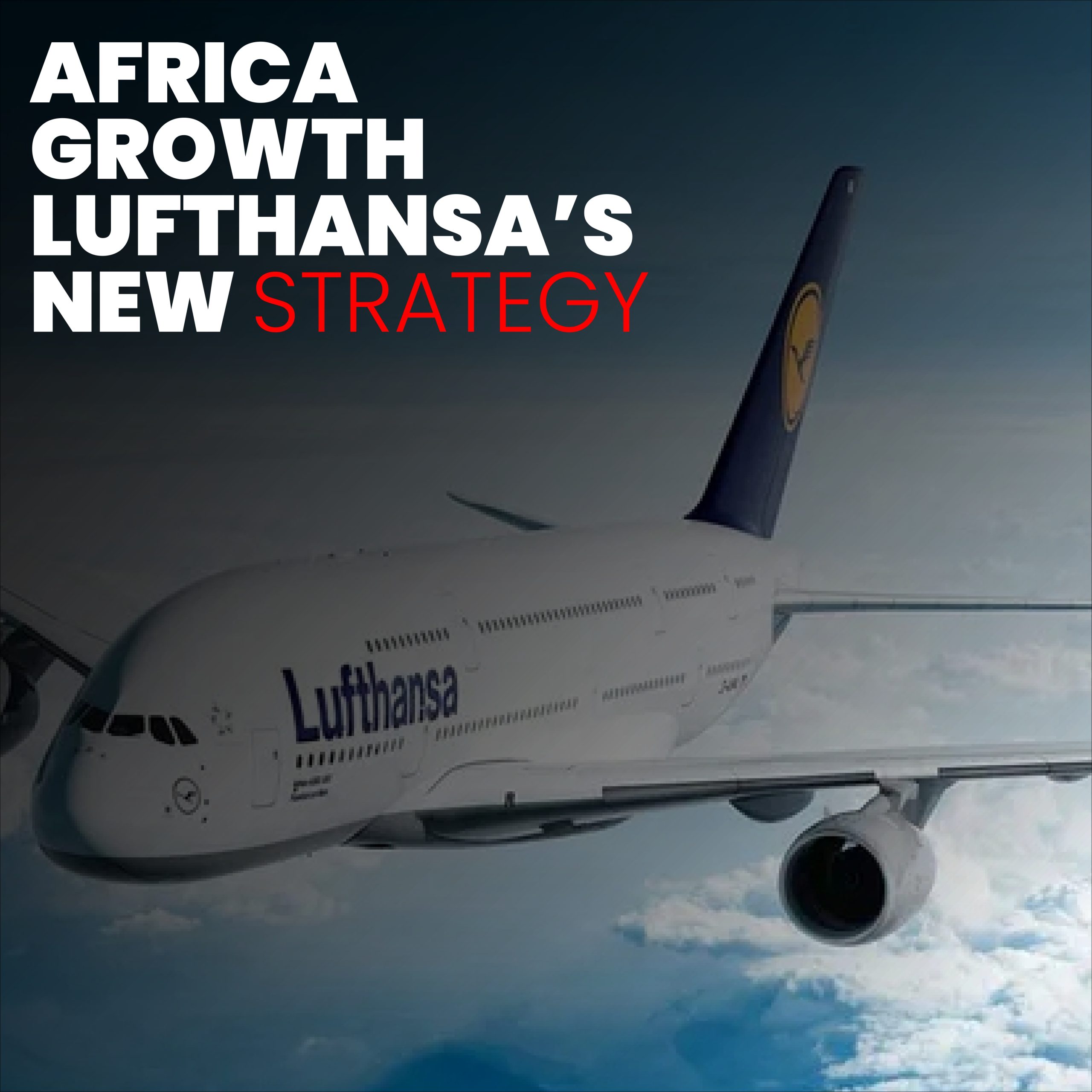Cape Town flights Introduction
Cape Town flights are at the heart of Lufthansa Group’s latest strategic push into Africa. The airline’s expanded network for the 2026 summer season adds frequency to South Africa’s premier tourist city and introduces new connectivity through Namibia.
This move highlights Lufthansa’s long-term confidence in Africa’s travel market and underlines how aviation drives trade, tourism, and sustainability. Industry analysts view these Cape Town flights as a clear signal: Southern Africa is no longer a peripheral route—it’s a core growth corridor for international carriers.
Cape Town flights Reflect a Market Rebound
After several challenging years, the resurgence of Cape Town flights represents the return of global travel confidence. Passenger demand from Europe to Africa has surged, outpacing early forecasts. Lufthansa’s expansion follows a steady rebound in leisure and business travel, with Cape Town ranking among the top three African destinations for inbound European visitors.
In economic terms, more frequent Cape Town flights translate into higher inbound spending, stable yields, and stronger bilateral travel ties between Germany, Switzerland, and South Africa.
Cape Town flights Showcase Smart Capacity Placement
Lufthansa’s strategic decision to position capacity toward Cape Town aligns with high-value travel demand. Rather than chasing volume across dozens of smaller African cities, the group focuses on flagship destinations that deliver consistent returns.
Cape Town’s combination of leisure tourism, film production, academic exchanges, and international events ensures a healthy mix of travelers year-round. By deploying five weekly flights, Lufthansa balances efficiency with market reach—enough frequency to stay competitive without oversaturating the route.
Cape Town flights Strengthen Network Synergy Across Africa
The coordination between Cape Town and Windhoek services gives Lufthansa a unique regional edge. Edelweiss Air’s Zurich–Windhoek connection complements the Frankfurt–Cape Town route, offering passengers seamless access to two complementary destinations.
Tourists can now plan multi-stop African experiences without needing complex transfers through Johannesburg or Nairobi. For the airline group, this synergy also optimizes aircraft rotations, crew utilization, and maintenance scheduling—critical factors for long-term profitability.
Cape Town flights Stabilize Pricing and Demand
More consistent service naturally moderates airfare volatility. Seasonal spikes once drove ticket prices to extremes, but additional Cape Town flights distribute demand more evenly throughout the year.
This benefits both airlines and travelers: operators achieve steadier load factors, while passengers enjoy fairer pricing and more booking options. For travel agencies, it simplifies package creation and encourages early commitments from European holidaymakers planning winter escapes.
Cape Town flights Advance Destination Branding
Visibility on airline timetables is a form of advertising in itself. Each additional Cape Town flight reinforces the city’s reputation as a must-visit global destination. The repetition of “Cape Town” across booking engines, newsletters, and airport displays embeds the name in travelers’ consciousness.
Tourism boards capitalize on this exposure by coordinating campaigns in Lufthansa’s key European markets, positioning Cape Town as both aspirational and accessible. The result: a steady rise in inquiries and long-term brand equity for South Africa.
Cape Town flights Embody Sustainability and Efficiency
Lufthansa Group’s commitment to deploying modern aircraft such as the Airbus A350 on Cape Town flights underscores its sustainability strategy. These aircraft reduce fuel burn and carbon emissions by up to 25 percent compared to older models.
The airline also supports the development of sustainable aviation fuel (SAF) and offers its Green Fares program to encourage carbon offset participation. This dual focus on operational efficiency and environmental responsibility strengthens Lufthansa’s corporate image while aligning with South Africa’s own green tourism goals.
Cape Town flights Inspire Public-Private Partnerships
Tourism and aviation thrive on collaboration. South African and Namibian tourism boards have joined forces with Lufthansa to maximize the impact of the expanded network. Together, they invest in co-branded marketing, destination training for travel agents, and joint media campaigns.
These partnerships ensure that the benefits of additional Cape Town flights extend beyond ticket sales—they stimulate investment in hotels, airports, and supporting infrastructure. The private sector, in turn, gains confidence to build capacity knowing that reliable air access exists.
Cape Town flights Illustrate Data-Driven Decision Making
Behind every new route lies a deep analysis of traveler behavior. Lufthansa’s planners leveraged data on search trends, load factors, and spending patterns before committing to new Cape Town flights.
The numbers revealed strong growth from affluent leisure markets in Germany, Switzerland, and the UK—segments that favor premium-class travel and longer stays. With analytics confirming sustained demand, Lufthansa could confidently scale operations without the risks of overcapacity.
Cape Town flights Position Africa as a Global Hub Frontier
For decades, Africa was seen primarily as a destination market rather than a network hub. That perception is changing fast. The expansion of Cape Town flights demonstrates how Southern Africa can anchor long-haul connectivity between continents.
As airspace modernization and open-skies policies progress, Cape Town is emerging as a secondary hub capable of linking Africa to Europe, the Middle East, and the Americas. Lufthansa’s success could prompt other carriers—such as British Airways or Emirates—to further strengthen their African footprints.
Cape Town flights Build Investor Confidence
Reliable air links often precede foreign investment. Business travelers, exporters, and tech entrepreneurs rely on consistent flight schedules to connect with partners. The expansion of Cape Town flights sends a message that South Africa is open for trade and tourism alike.
This infrastructure confidence encourages international companies to host conferences, open offices, and develop joint ventures. Each of these actions multiplies the economic effect of tourism far beyond the airport gates.
Cape Town flights Enhance Passenger Experience
Travelers benefit from enhanced comfort, technology, and service. Lufthansa’s Cape Town flights include digital boarding passes, biometric boarding, and upgraded in-flight entertainment. Passengers enjoy Wi-Fi connectivity, curated meal options, and German-style efficiency throughout the journey.
Such amenities make long-haul travel less taxing and increase repeat visitation. For Cape Town’s hospitality sector, a positive flight experience translates directly into higher satisfaction scores and word-of-mouth promotion.
FAQs
1. Why are Cape Town flights central to Lufthansa’s Africa strategy?
Because they anchor the airline’s presence in Southern Africa and link two strong tourism economies—South Africa and Namibia.
2. How do Cape Town flights benefit travelers and the economy?
They provide more options, lower fares, and stimulate job creation in tourism, aviation, and related sectors.
3. Are the Cape Town flights part of a sustainability plan?
Yes. Lufthansa is deploying next-generation aircraft and offset programs to meet its carbon-neutrality goals.
Conclusion
The expansion of Cape Town flights signals Lufthansa’s long-term belief in Africa’s potential as a connected, competitive, and sustainable market. By blending smart network design, sustainability, and collaboration, the airline has turned a simple route increase into a broader growth strategy.
For South Africa and Namibia, the payoff is profound: more visitors, stronger branding, and deeper integration with global travel systems. In many ways, Cape Town flights are more than transport—they’re the blueprint for Africa’s aviation future.




